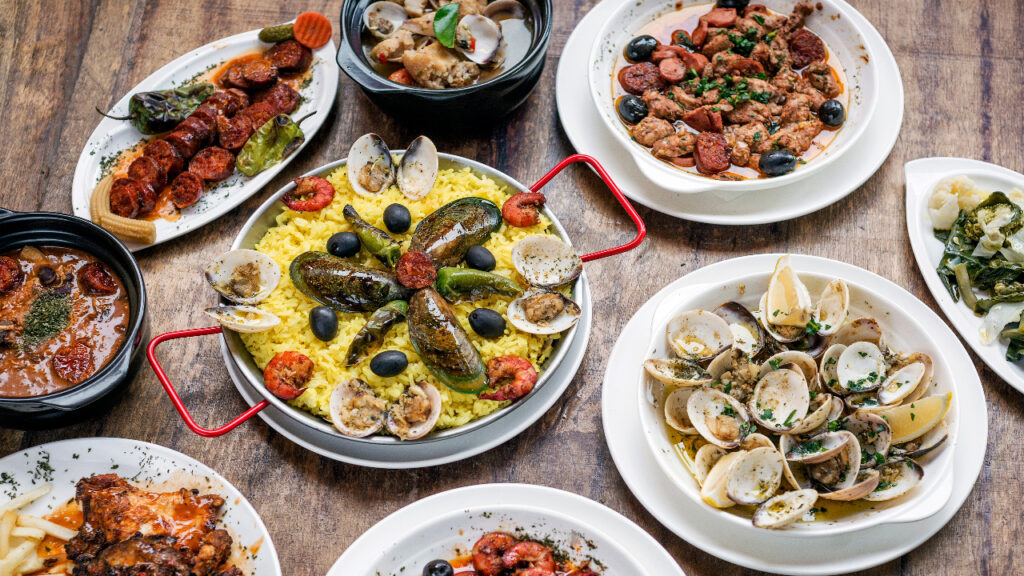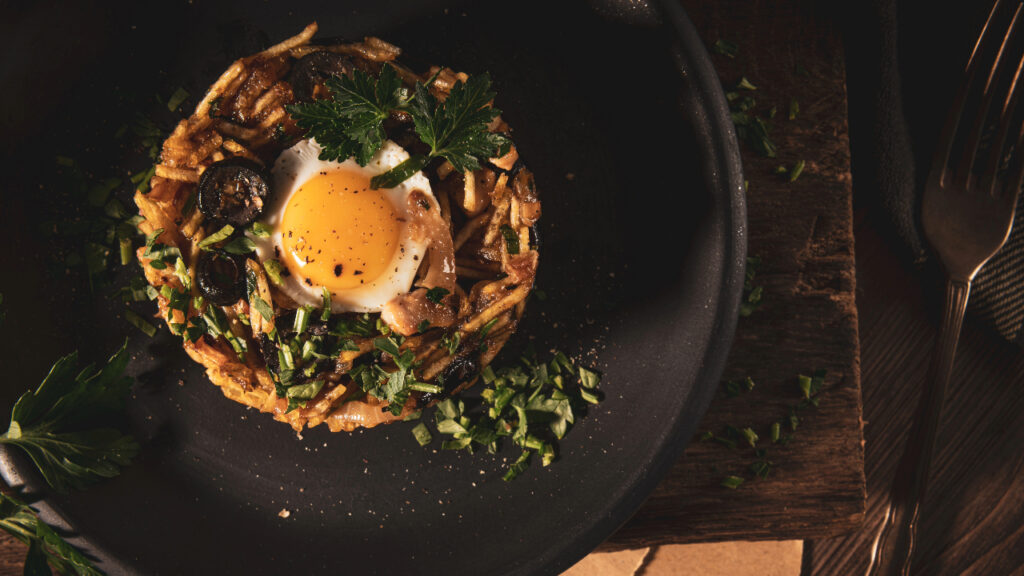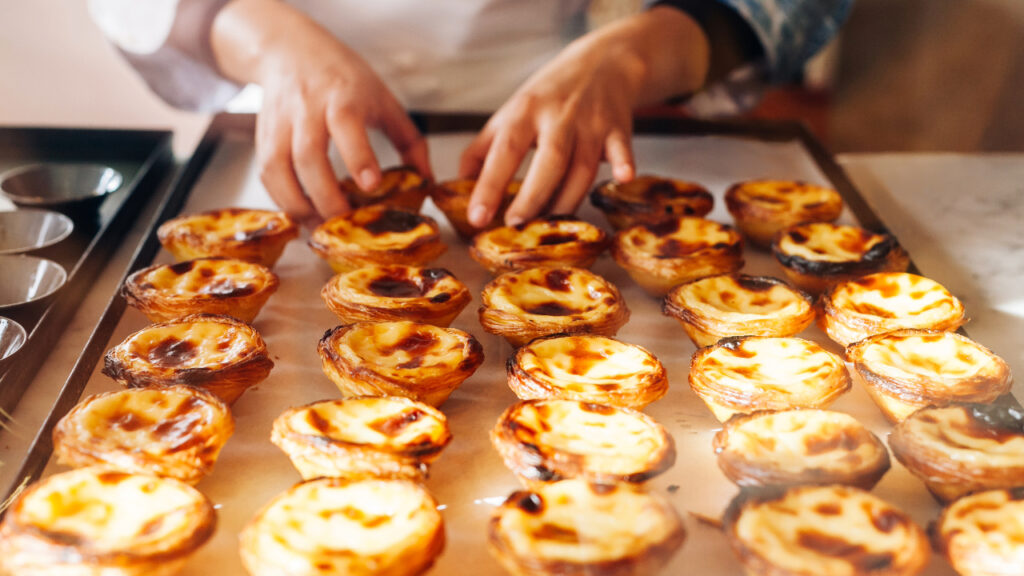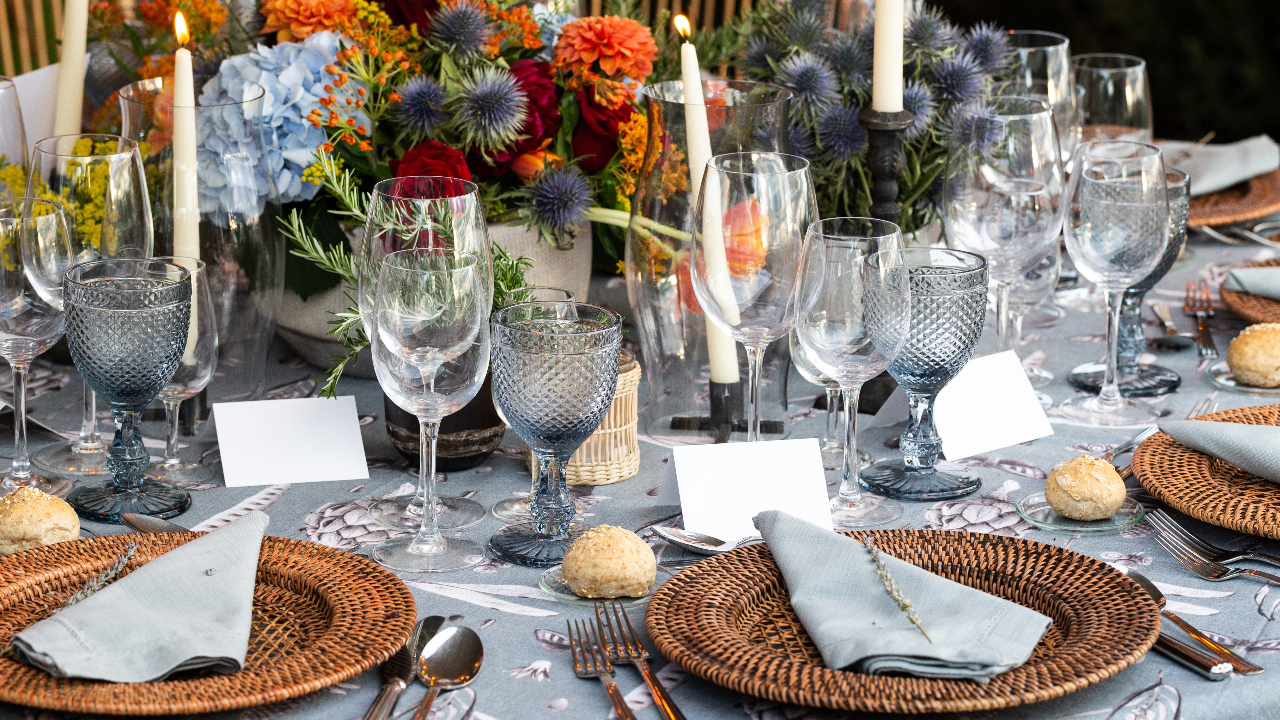Hey there! Are you in the midst of planning your big day and dreaming of a wedding menu that’s a little bit different, bursting with flavours, and steeped in tradition? Let’s talk about bringing the vibrant tastes of Portugal to your wedding table! Imagine tantalizing your guests with a menu that’s a delicious dive into Portuguese culture, from mouth-watering seafood starters to delectable desserts that’ll have everyone talking long after the last dance. Whether you’re a foodie at heart or just looking for something uniquely memorable for your special day, this article is your go-to guide. We’re going to explore the rich, diverse world of Portuguese cuisine and how you can sprinkle a little bit of this culinary magic into your wedding feast. Ready to whet your appetite? Let’s get started!
▶️ Read also: Navigating the legalities, getting married in Portugal as a foreigner
Portuguese cuisine is a delightful fusion of flavours, textures, and aromas. At its heart, this cuisine is a testament to Portugal’s rich history, a tale of maritime exploration and cultural exchanges. The country’s seafaring past has not only brought a bounty of seafood to its tables but also introduced a variety of spices from around the world. This melding of local ingredients with exotic spices has created a culinary palette that is both familiar and intriguingly unique.
The coastal landscapes of Portugal play a crucial role in shaping its food culture. The Atlantic Ocean offers up a plethora of seafood, making it a staple in the Portuguese diet. Dishes like ‘Bacalhau’ (salted cod), considered the national dish, and ‘Caldeirada’ (fish stew), reflect the country’s love affair with the sea. However, the cuisine is not solely about seafood. The inland regions contribute just as richly with succulent pork, spicy chorizos, and a variety of cheeses, each telling a story of the local terroir and traditional farming practices.
Influences from former colonies such as Brazil, Angola, and Goa have also left an indelible mark on Portuguese cuisine. The use of spices like piri-piri (a type of chili pepper) and cinnamon is a nod to these historical connections. Moreover, the Portuguese penchant for combining sweet and savoury—think dishes like ‘Porco à Alentejana’ (pork with clams)—is a culinary quirk that highlights the adventurous spirit of Portuguese gastronomy. This blend of bold flavours and simple, fresh ingredients creates a cuisine that is unpretentious yet deeply satisfying, a perfect reflection of the country’s landscape and history.
Appetizers: A taste of the sea and land
Portuguese appetizers are a delightful prelude to any meal, especially for a wedding, where they set the tone for the culinary delights to follow. Seafood plays a starring role in these starters, reflecting Portugal’s deep connection with the ocean. A popular choice is « Pataniscas de Bacalhau » (🍳 recipe here), a dish where salt cod is expertly blended with flour, eggs, and parsley, and then fried into delicious, golden fritters. These crispy treats are often served with a squeeze of lemon, adding a bright, acidic contrast to the rich flavours. Another seafood classic is « Amêijoas à Bulhão Pato » (🍳 recipe here), named after the 19th-century Portuguese poet Raimundo António de Bulhão Pato. This simple yet flavourful dish combines fresh clams with a sauce of garlic, olive oil, white wine, and cilantro, creating a harmonious balance of savoury and aromatic notes.
But Portuguese appetizers are not just about the treasures of the sea; they also showcase the rich produce and meats from the land. « Chouriço Assado« , a type of flame-grilled Portuguese sausage, is a crowd-pleaser with its smoky and spicy flavours. Often served on a traditional terracotta dish, the chouriço is cooked right at the table over an open flame, adding a theatrical element to the dining experience.
For vegetarians, options like « Peixinhos da Horta » (🍳 recipe here), or ‘little garden fishes’, offer a delightful alternative. This dish, typically made with green beans coated in a light batter and fried, is a nod to Portugal’s knack for turning simple ingredients into culinary masterpieces.

Main courses: A symphony of flavours
When it comes to main courses in Portuguese wedding cuisine, the offerings are as diverse as they are flavourful, combining the best of land and sea to create dishes that are both hearty and elegant. A staple and beloved classic is « Bacalhau à Brás » (🍳 recipe here), a dish that embodies the simplicity and richness of Portuguese cooking. This traditional recipe features shredded salt cod (bacalhau), which is first rehydrated, then combined with thinly sliced fried potatoes, onions, and scrambled eggs, culminating in a dish that is both comforting and sophisticated. The delicate balance of the salt cod with the creamy texture of the eggs and the crispy potatoes makes it a favourite at any Portuguese table.
Another exquisite main course option is « Porco à Alentejana » (🍳 recipe here), a testament to the Portuguese mastery of combining meat and seafood. This dish features marinated pork, typically cubed and seasoned with garlic, wine, and spices, then slow-cooked to tender perfection. Clams are added to the mix, creating a surprising yet harmonious combination of flavours and textures. The dish is often served with potatoes and garnished with cilantro and black olives, adding freshness and a touch of elegance. The key to this dish lies in the marination and slow cooking of the pork, ensuring that every bite is infused with depth and flavour.

Side dishes: Complementing the mains
In Portuguese cuisine, side dishes play a crucial role in complementing the main courses, adding depth and variety to the meal. These sides are not mere afterthoughts but integral elements that enhance the overall dining experience, especially in a wedding setting where each dish contributes to the celebratory atmosphere. One of the classic side dishes is « Arroz de Pato« , a rich and flavourful duck rice. This dish combines tender, slow-cooked duck with aromatic rice, often infused with the flavours of chorizo and a variety of herbs and spices. The result is a dish that’s both comforting and luxurious, with each component bringing out the best in the others. The rice, absorbing the juices and flavours of the duck and chorizo, becomes a delightful blend of textures and tastes.
Another quintessential Portuguese side is « Batatas a Murro« , literally translating to ‘punched potatoes’. This dish features small, roasted potatoes that are ‘punched’ or lightly smashed after cooking. They are then drizzled with olive oil and seasoned with garlic, sometimes with a sprinkle of coarse salt and herbs. The beauty of Batatas a Murro lies in its simplicity and the way it complements richer, more complex main dishes. The crispy exterior and fluffy interior of the potatoes make them an ideal accompaniment to both meat and fish dishes, providing a satisfying contrast in textures.
Desserts: Sweet endings
Portuguese desserts are a celebration of sweetness and tradition, providing a perfect end to any meal, especially a wedding feast. Among the most beloved are the iconic « Pastéis de Nata » (🍳 recipe here), a pastry that has won hearts far beyond Portugal’s borders. These custard tarts are a marvel of simplicity and flavor, featuring a crisp, flaky pastry filled with a smooth, creamy custard. The key ingredients are simple yet effective: egg yolks for richness and color, sugar, cinnamon, and lemon rind. When baked, the top of the custard caramelizes, creating a beautiful contrast in both taste and texture. The result is a dessert that is not overly sweet but perfectly balanced, making it an ideal choice for a wedding.
Another classic Portuguese dessert ideal for weddings is « Bolo de Bolacha » (🍳 recipe here), a biscuit cake that is as delightful to taste as it is simple to make. This no-bake dessert consists of layers of ‘Maria’ biscuits, alternated with a rich coffee and buttercream mixture. The biscuits are soaked in coffee, giving the cake a subtle caffeine kick, while the buttercream adds a silky smooth texture. The beauty of Bolo de Bolacha lies in its versatility; it can be adapted to various tastes with the addition of cocoa powder, cinnamon, or even a splash of Portuguese liqueur. This dessert is not just a treat for the palate, but also a nod to the Portuguese tradition of enjoying simple, homely desserts.

🍷 And what about wine ? The Portuguese are as passionate about their wines as they are about their food, making wine an essential part of any meal, especially a celebratory one like a wedding. Portugal’s diverse wine regions produce a range of styles, perfectly suited to complement the country’s rich and varied cuisine. For seafood and lighter dishes, a bottle of Vinho Verde, with its light, refreshing, and slightly effervescent nature, is an excellent choice. This wine’s subtle fruitiness and low alcohol content make it a pleasant drink that won’t overpower the delicate flavours of the appetizers and seafood-based main courses. For heartier meat dishes, consider a robust red from the Douro Valley or Alentejo region. These wines, known for their depth and complexity, pair wonderfully with the rich flavours of traditional Portuguese meat dishes, enhancing the dining experience.
Incorporating Portuguese cuisine into your wedding menu offers a unique opportunity to celebrate love with the vibrant flavours of Portugal. From the fresh seafood appetizers to the rich, spiced main courses and delectable desserts, your wedding feast is sure to be a memorable gastronomic journey for you and your guests.






